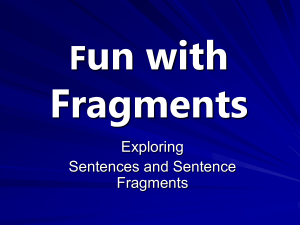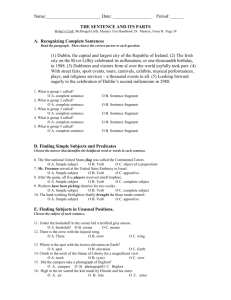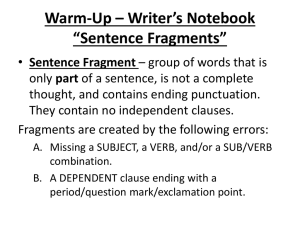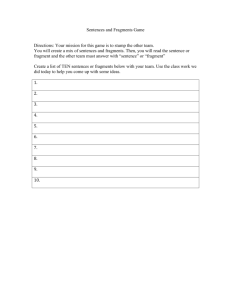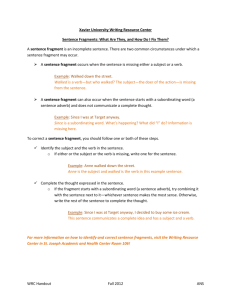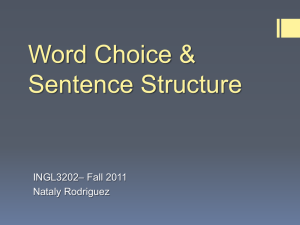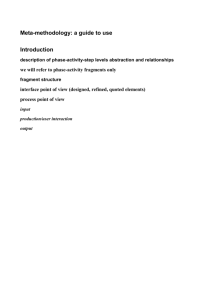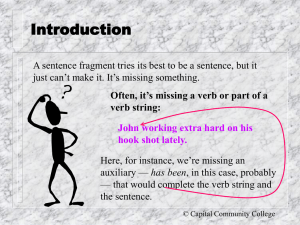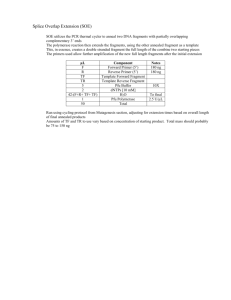Fragments
advertisement
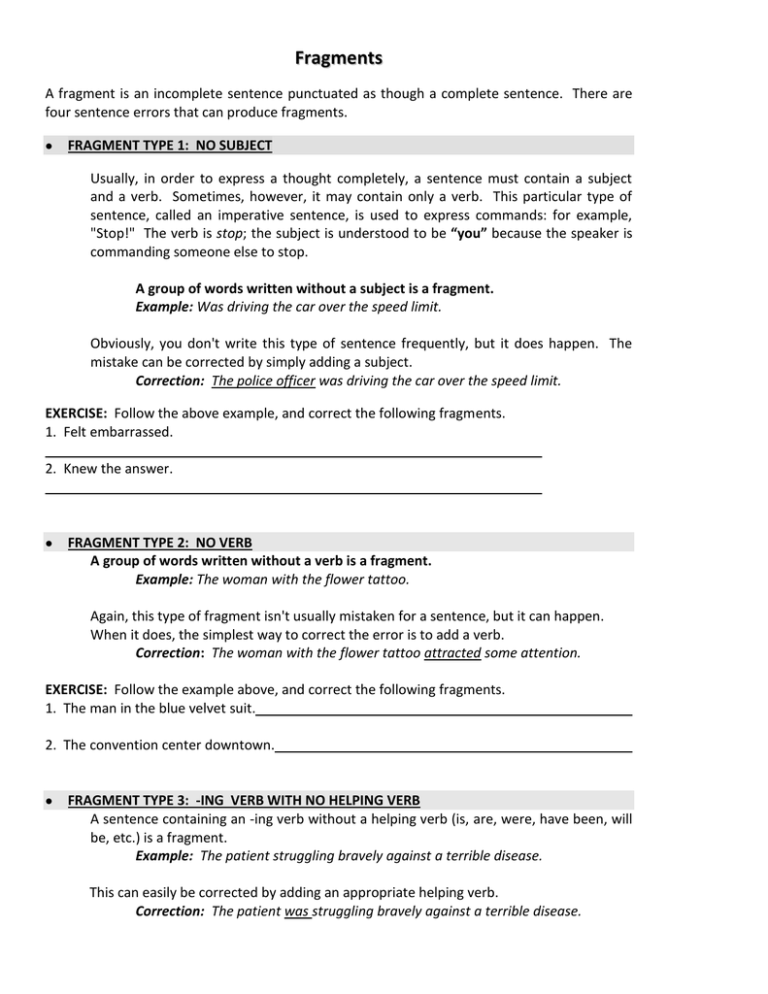
Fragments A fragment is an incomplete sentence punctuated as though a complete sentence. There are four sentence errors that can produce fragments. FRAGMENT TYPE 1: NO SUBJECT Usually, in order to express a thought completely, a sentence must contain a subject and a verb. Sometimes, however, it may contain only a verb. This particular type of sentence, called an imperative sentence, is used to express commands: for example, "Stop!" The verb is stop; the subject is understood to be “you” because the speaker is commanding someone else to stop. A group of words written without a subject is a fragment. Example: Was driving the car over the speed limit. Obviously, you don't write this type of sentence frequently, but it does happen. The mistake can be corrected by simply adding a subject. Correction: The police officer was driving the car over the speed limit. EXERCISE: Follow the above example, and correct the following fragments. 1. Felt embarrassed. 2. Knew the answer. FRAGMENT TYPE 2: NO VERB A group of words written without a verb is a fragment. Example: The woman with the flower tattoo. Again, this type of fragment isn't usually mistaken for a sentence, but it can happen. When it does, the simplest way to correct the error is to add a verb. Correction: The woman with the flower tattoo attracted some attention. EXERCISE: Follow the example above, and correct the following fragments. 1. The man in the blue velvet suit. 2. The convention center downtown. FRAGMENT TYPE 3: -ING VERB WITH NO HELPING VERB A sentence containing an -ing verb without a helping verb (is, are, were, have been, will be, etc.) is a fragment. Example: The patient struggling bravely against a terrible disease. This can easily be corrected by adding an appropriate helping verb. Correction: The patient was struggling bravely against a terrible disease. EXERCISE: Follow the above example, and correct the following fragments. 1. The dancers circling the stage. 2. The jet flying overhead. FRAGMENT TYPE 4: INCOMPLETE THOUGHT A dependent clause (a group of words that contains a subject and a verb but does not express a complete thought) that is punctuated as a sentence is a fragment. Example: That the children were very curious. When editing very quickly, you might see a subject and verb in this dependent clause and incorrectly label it a sentence. But if you read the clause carefully, you can hear that it is not a complete thought. The fragment leaves the reader hanging in mid-air, asking Who? When? or Why? NOTE: A dependent clause usually begins with a subordinate conjunction or a relative pronoun. The following words are some of the most common subordinate conjunctions and relative pronouns; you should be able to recognize most of them. after although as (as if) because even though how if since so that that what whatever when where while who whoever whom which unless until There are two ways to correct a dependent-clause fragment: 1. Because it is the subordinate conjunction that transforms the independent clause (simple sentence) into a dependent clause, removing the subordinate conjunction will leave you with a simple sentence. Fragment: That the children were very curious. Correction: The children were very curious. 2. Connect the dependent clause to an independent clause, and create a complex sentence. Fragment: Although I have an email account. Correction: Although I have an email account, I rarely email my friends. EXERCISE: Follow the above examples as models, and correct the following fragments. 1. Because small cars get better gas mileage. 2. Although the passersby stopped at the scene of the accident. APPLICATION I Decide whether each group of words below is a sentence or a fragment. Write C in the blank if correct and write Frag if incorrect. Correct the fragments. ____________ 1. Before heading for home, the tired student had another cup of coffee. ____________ 2. Although obesity requires a person to modify the diet. _________ 3. After the hackers tried to disrupt the computer network. _________ 4. The beautiful girl with the red hair and the bright eyes. _________ 5. The teacher grading papers with a red pen. APPLICATION II Read the following paragraph carefully. Write C if it is a complete sentence and Frag if it is a fragment. Then correct all fragments. Summer should be a time to enjoy, yet many people consider it a miserable season. Infants and toddlers playing all the time in the summer. They are bothered by the heat. Since their bodies haven't yet fully developed the ability to dissipate heat. Mothers find the situation frustrating because they cannot explain the causes to their babies and they cannot force their children to slow down. Apartment dwellers can't enjoy the summer either. Frequently, apartments lack cross-ventilation, so the hot air stays in the small, boxy rooms. Also, apartment dwellers don't own backyards, so they have no place to go on a fine summer day. Rather than just stepping out on to the lawn. They must plan a major trip to a park or beach for summertime fun.
